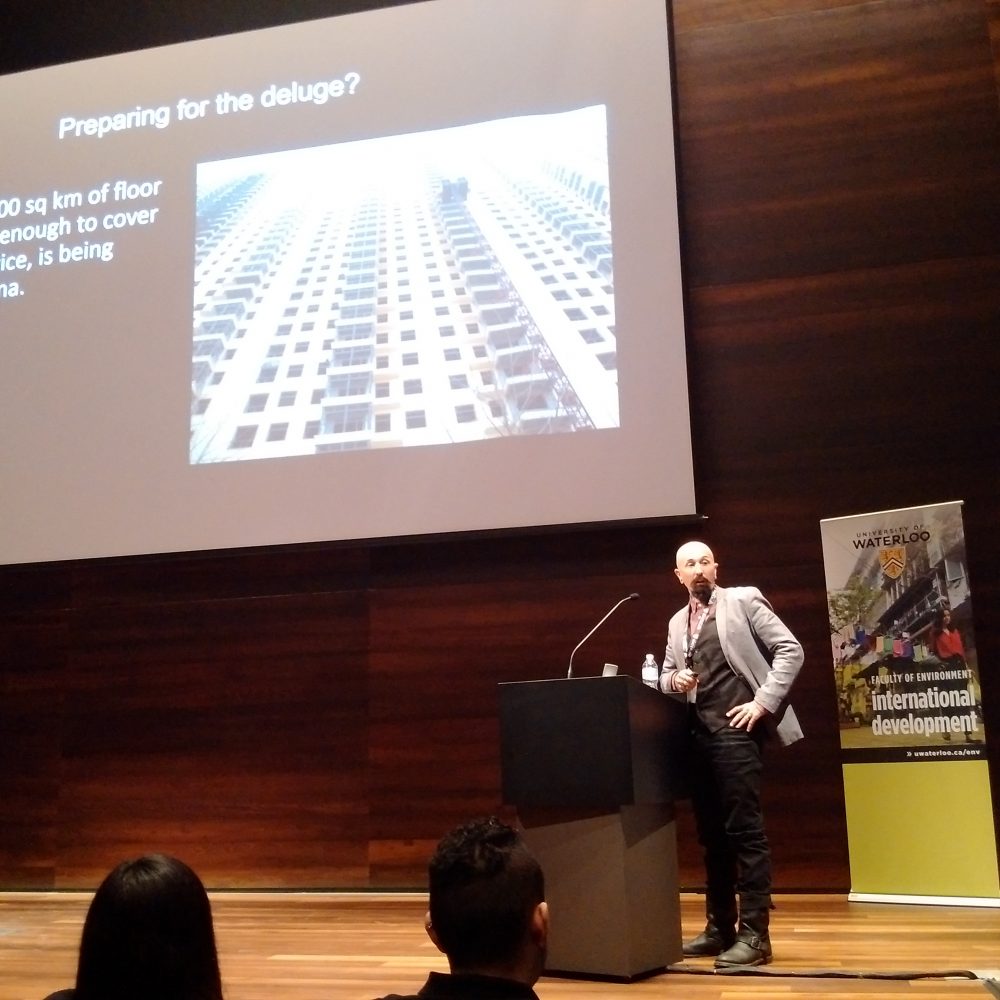Learning to love the game.
 Published on March 23, 2018
Follow me on Twitter here.
Published on March 23, 2018
Follow me on Twitter here.
RHODES, Greece- Part of my work is talking to various media sources — being interviewed, etc.
It’s one thing to embark on a creative pursuit but it’s quite another to be able to talk about it — to communicate what it is that you do and why it’s important. These are the two sides of any art, and one is virtually irrelevant without the other.

So I do interviews, give talks, do radio shows, sometimes appear in documentaries and on TV …
I’ve cultivated authority in three topics so far: new cities, the New Silk Road, and conflicts in international e-commerce (counterfeits). These are three different topics that often bring in three different sectors of inquiry — which is part of the strategy.

The idea here is to set up a dragnet — a funnel of sorts — that’s lined with “indicators of expertise” that can lead people who are looking for information on a topic that I cover back to me. Authority, in and of itself, doesn’t have much of value. It’s the application of this authority that matters.
Media appearances are basically advertising. No money exchanges hands, but it’s a win-win scenario nonetheless: the reporter gets information a story and I further become associated with the topic. Then if someone else needs someone to write a story, consult on a film, provide business advice, or give a talk, they may reach out to me with an offer. It’s the later engagements that pay.

***
I used to get nervous when talking with the media. But then in 2014 something happened that changed this.
I was standing on my balcony in Xiamen cringing up — seriously cringing up — in nervousness because I was about to go live on some big Australian radio show. I was thinking to myself, “I hate this, I hate this, I hate this,” but then something clicked:
Instead of saying “I hate this” why not say “I like this?”
It was a silly psychological trick — one that I didn’t think could work. How could this work? Personal preferences are inherent, not intentional …. right?
But I tried it anyway.
“I like this. I like this. I like going on the radio. I like that thousands of people in some other country are going to listen to me.”
Then something happened:
A wave of appreciation — yes, that’s what it was — came over me. Suddenly, I didn’t view myself as prey but as someone who was being presented with a very unique opportunity.
These people are calling me all the way from Australia to hear what I have to say. People in Australia are going to take time out of their day to listen to what I have to say.

It made me feel kind of special, it made me feel, as silly as it sounds, happy. I smiled. I relaxed. The nervousness flowed down through my legs and out through my fingers. It was gone. My breath deepened. I smiled again. I laughed and joked as I did the segment. I had fun.
That’s the way it’s been when doing media engagements ever since.
***
I did two interviews yesterday. One was for this documentary on the Belt and Road — there were tech errors and we didn’t get it done — and the other was for a story on Asian Property Review about new cities in Asia.
 These media appearances take a large amount of time, as I have difficulty doing them half ass. I tell the entire story, from start to finish, I put time into it — I want the final product to be as good as possible.
These media appearances take a large amount of time, as I have difficulty doing them half ass. I tell the entire story, from start to finish, I put time into it — I want the final product to be as good as possible.
I also like what I do and, yes, I have to admit that I really like talking about it.
I believe, when it comes down to it, everybody does.
About the Author: VBJ
I am the founder and editor of Vagabond Journey. I’ve been traveling the world since 1999, through 91 countries. I am the author of the book, Ghost Cities of China and have written for The Guardian, Forbes, Bloomberg, The Diplomat, the South China Morning Post, and other publications. VBJ has written 3706 posts on Vagabond Journey. Contact the author.
VBJ is currently in: New York City
Next post: A Surprising Question On The Way To Dumq
Previous post: Getting An Oman eVisa Took Three Minutes

